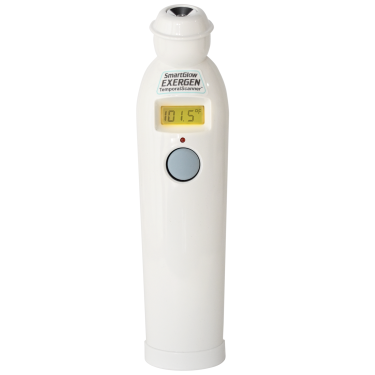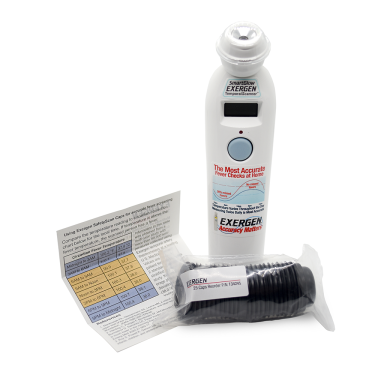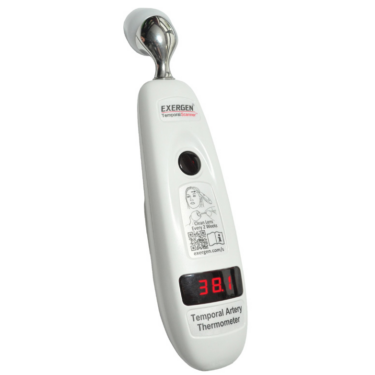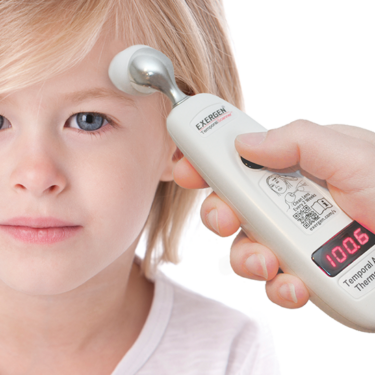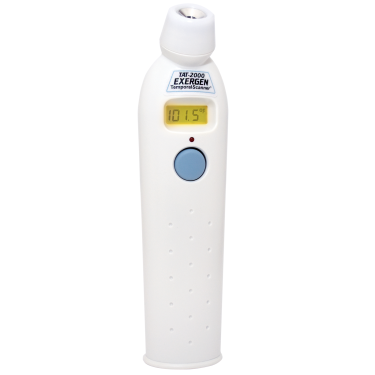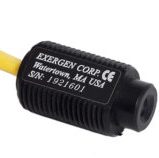A new study1 published by JAMA Network proves that individuals, in this case, young, healthy, male basketball players, who tested positive for COVID-19 but were asymptomatic, did not spread the virus despite being in a closed, isolation “bubble” over a period of months.
Over approximately four months, nearly 4,000 basketball players, staff, and vendors interacted in indoor, unmasked, close contact activities that involved direct exposure between persistent positive cases and noninfected individuals. All the people in the closed environment participated in a regular, supervised testing program. The study concluded that recovered individuals who continued to test positive for SARS-CoV-2 following discontinuation of isolation were not infectious to others.
![]()
“This real-world experiment gives us even more important evidence into how the disease is transmitted,” said Francesco Pompei, Ph.D., CEO of Exergen Corporation. “The idea of transmission without symptoms is largely a fallacy and the only effective way to screen for fever, the number one COVID-19 symptom, is with an accurate thermometer. Unfortunately, the widespread use of non-contact thermometers has been highly misleading and provides a false sense of security to everyone. It has likely contributed to the rapid spread of the virus despite all the precautions people have taken.”
A mounting body of scientific evidence shows that COVID-19 is not transmitted by individuals who do not have symptoms. Here are the studies:
- Madewell et al. Household Transmission of SARS-CoV-2. JAMA Network Open. 2020 Dec 14. doi: 10.1001/jamanetworkopen.2020.31756
A study from the Centers for Disease Control and Prevention (CDC)
Non-contact thermometers have been scientifically proven in these studies to be inaccurate:
- Pompei and Pompei. Non-Invasive Temporal Artery Thermometry: Physics, Physiology, and Clinical Accuracy. Proceedings of the SPIE- The International Society for Optical Engineering. 2004 Apr 12. doi: 10.1117/12.544841
- Wright and Mackowiak 2021. Why temperature screening for coronavirus disease 2019 with noncontact infrared thermometers does not work. Open Forum Infectious Diseases, Volume 8, Issue 1, January 2021, ofaa603, https://doi.org/10.1093/ofid/ofaa603
- Khan et al. Usefulness of Forehead Infrared Thermometers to Scan Patients for Fever During COVID-19 Pandemic. Pak Armed Forces Medical Journal. 2020 Sept 14.
- Khan et al. Comparative accuracy testing of non-contact infrared thermometers and temporal artery thermometers in an adult hospital setting. American Journal of Infection Control. 2020 Oct 2. doi: 10.1016/j.ajic.2020.09.01
About Exergen Corporation
Exergen manufactures and markets two series of the TemporalScanner thermometer: a professional version for hospitals and clinics, and a consumer version sold in major retailers nationwide. More than two billion temperatures are taken each year with TemporalScanners. Used in thousands of hospitals and clinics across the country as well as in millions of homes, TemporalScanners are the #1 preference of pediatricians, nurses, and mothers. The Exergen TemporalScanner’s accuracy is supported by more than 80 peer-reviewed published studies covering all ages from preterm infants to geriatrics and all care areas from hospitals to homes.

